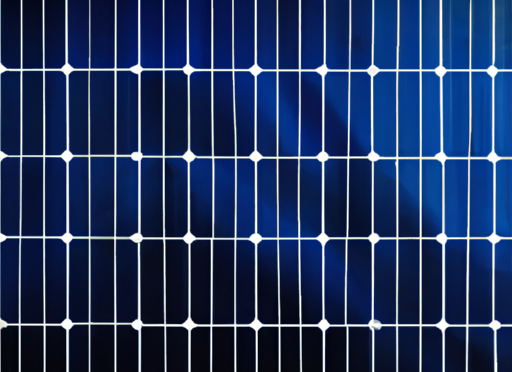A solar panel is a technology that enables the use of solar energy. Solar cells consist of photovoltaic cells that convert sunlight into electricity. This energy can then be used to generate electricity or power other appliances.
The operation of solar cells is essentially based on the photovoltaic phenomenon. Photovoltaic cells are made of materials that emit electrons in response to photon radiation. This electron emission generates an electric current that can then be harnessed.
Solar cells are usually made of silicon, a semiconducting material. The silicon is sandwiched between two layers that have different charges. One layer is positively charged and the other is negatively charged. When sunlight strikes the solar cell, the energy from the photons emits electrons from the silicon atoms. The electrons then move in the electric field between the two layers, generating an electric current.
Solar cells are usually used in the form of panels of several cells placed side by side. These panels are interconnected to achieve a higher output. Solar panels are generally used for domestic or industrial purposes, but are also becoming increasingly popular in areas where there is no access to the conventional electricity grid.
Solar panels have many advantages. Firstly, solar energy is free and unlimited. Secondly, solar panels produce electricity in an environmentally friendly way, as they do not emit pollutants. Third, solar panels have a long lifetime and require little maintenance.
However, solar panels also have limitations. Firstly, solar energy production depends on the number of hours of sunshine and weather conditions. Second, solar panels can be expensive to install and maintain. Thirdly, the efficiency of solar panels still needs to be improved and they do not reach maximum performance in all areas.
Overall, solar panels are an exciting and promising technology for harnessing solar energy. Although it has its limitations, solar panels are becoming increasingly popular and are being used more widely around the world. Harnessing solar energy can help to reduce the use of fossil fuels and contribute to the spread of sustainable energy sources.
∑: panels, energy, electricity, photovoltaic, electrons, electric, silicon, technology, sunlight
